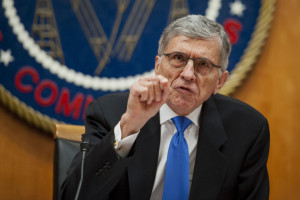
The Federal Communications Commission (FCC) last Thursday voted to advance a proposal by FCC Chairman Tom Wheeler on the expansion of the Lifeline program that would provide subsidies to low-income Americans and enable them to gain access to affordable broadband internet. In a move aimed squarely at helping low-income American households better participate in the information economy, the FCC voted 3-2 to advance discussion on expanding the program which was created under the Reagan Administration in 1985 to help low-income Americans afford home telephone connections.
Among those in support of the FCC’s proposal, National Hispanic Media Coalition (NHMC) Executive Vice President Jessica Gonzalez noted in a statement that “only 53% of American Latinos, and a mere 37% of Spanish-dominant Latinos, have home broadband.” Adding, “broadband is critical to nearly every facet of modern American life, including education, employment, healthcare, civic participation and more. This crisis must be addressed without delay.”
Critics such FCC Commissioner Ajit Pai, who dissented on Thursday’s vote, point to the last expansion of the Lifeline program in 2005. Following that move expanding the program to include wireless telephone service, waste and fraud become so problematic that in 2012 the FCC cut back on those same subsidies in an effort to stem the abuse.
Supporters, however, point out that the expansion of the Lifeline program to include subsidies at $9.25 per month for low-income Americans to better obtain broadband access is a key step in the right direction towards bridging the digital divide between the haves and the have-nots. Further, supporters highlight the facts that in today’s economic environment the move represents the next evolutionary step in the program to ensure greater economic participation at a higher degree.
Wheeler, remarking on the FCC’s vote, said that “today begins a proceeding to spend ratepayers’ money more wisely, [and] to deliver 21st century benefits to deserving recipients.”

Recent Comments